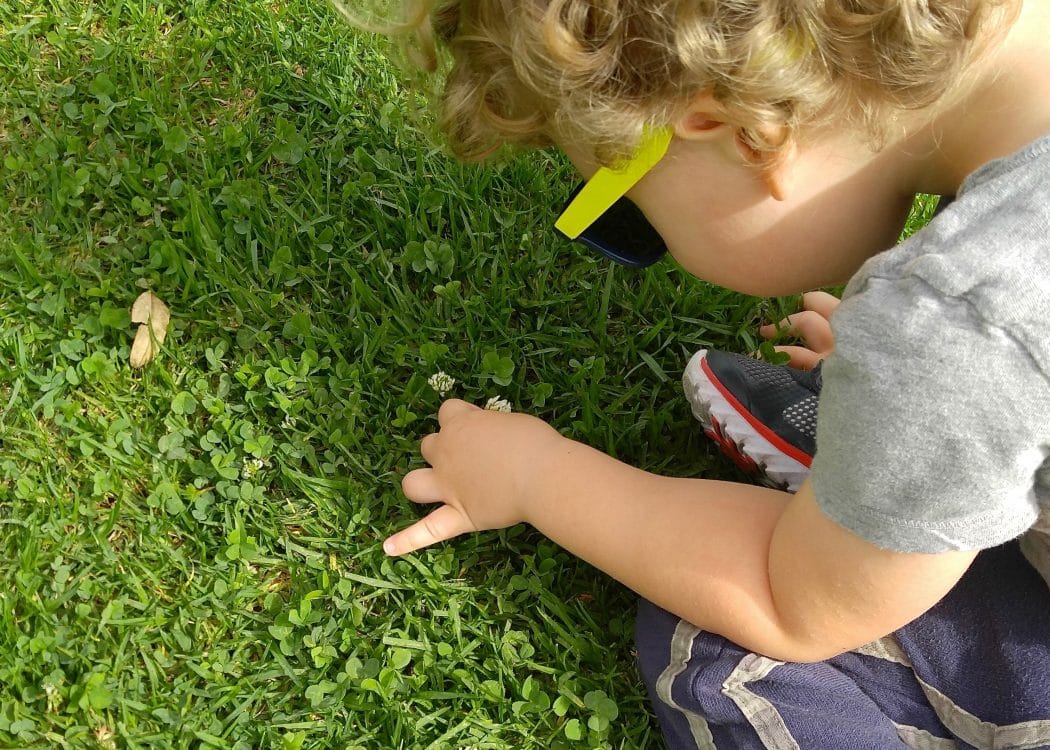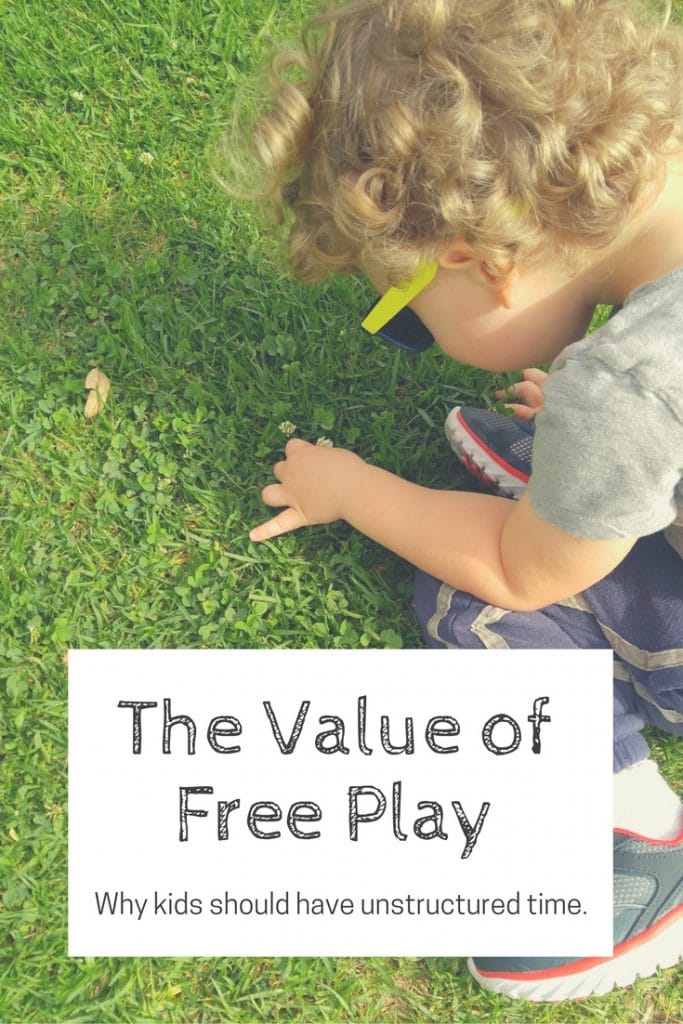These days, kids schedules are fully packed. Even if it’s just a few after school activities, they often fill up a child’s hours pretty quickly. They go to school, which is requiring children to sit for longer periods of time doing schoolwork. Recess is being cut exponentially, giving kids barely enough time to scarf down a lunch before a hurried and structured recess. I worry about the decrease of unstructured play in preschool when it comes time to send my son. Then there’s an after school activity, requiring more focus and obedience. Then there’s homework, dinner, and bedtime. Especially for a child, that routine can be extremely tedious and leaves no time for the child to have free play.
Free play was basically just a time when they could play with or do whatever they wanted (within the rules for safety and peace). Free play is often viewed as a bit of a waste and far from educational. Shouldn’t the kids be doing something? Isn’t free play a wasted learning opportunity? Yes, the time spent in “free play” could be spent teaching the children a language or sport or skill, but it is not wasted time.
Unstructured play is one of the most valuable learning opportunities for a child. Just because it is not structured or adult-led, there is quite a bit of learning occurring this type of play. Children are able to learn and absorb at their own pace and are fully in charge of their choices.
These are some of the benefits of unstructured play:
- Nurtures independence. During free play, children are in charge of themselves, helping them to build confidence in becoming independent in more and more situations. This is all practice to later become fully independent adults.
- Boosts creativity. Free play involves coming up with unique games and practicing pretend play, both require imagination and inventiveness.
- Enhances decision making and problem solving skills. Children often get into the habit of always relying on an adult to make decisions for them and fix their problems. During free play, children practice by making choices on the direction of their play and have to come up with solutions to problems that arise. This is an excellent lesson that they are not helpless.
- Improves social skills. When children have unstructured play in groups, it requires both collaboration and cooperation. If chaos ensues, then play cannot happen and no one has fun. When kids realize this, they practice working as a team for a group goal. It’s best for kids to practice these skills with their peer equals instead of adults. Also, free play enables kids to practice real world social interactions, especially during pretend play.
- Gives kids a chance to discover their interests. If kids spend all their time in just a few activities, they are given the chance to explore, independently, other options. They may discover they love martial arts, painting, building, designing, writing, etc.
- Tests their boundaries. During free play, kids are given the chance to test their own limitations. This is especially valuable when it comes to dangerous situations. For example, when kids climb something, they learn how to handle fear, how to better control their body, and how far they can safely go. This is important because they learn to control their desire for thrill and to safely experience it, which are vital skills during adolescence.
- Teaches them about emotions. Unstructured play enables children to practice expressing emotions that they feel in a socially acceptable way (especially during group free play) as well as time to mimic emotionally charged behavior (during pretend play). Practice is what will help children to understand what they are feeling and how to react.
- Let’s them feel bored. It’s totally okay for kids to be bored. In fact, it’s good for their development, as long as they aren’t given screen time (which provides instant gratification). Not only does this give them some calm to think and unwind, it encourages them to get even more creative with their time. When they are adults, they will have learned how to cope with waiting, boredom, and free time without going mad or relying on a screen.
- Stimulates growth of the brain. Both play and exploration cause certain parts of the brain responsible for cognitive thinking to grow. This is because of all of the above skills they are developing during unstructured play. But it’s also because children learn better if given time to frequently “let off steam” and engage in free play.
So, does free play have value in a child’s day? Unstructured play is absolutely priceless.






